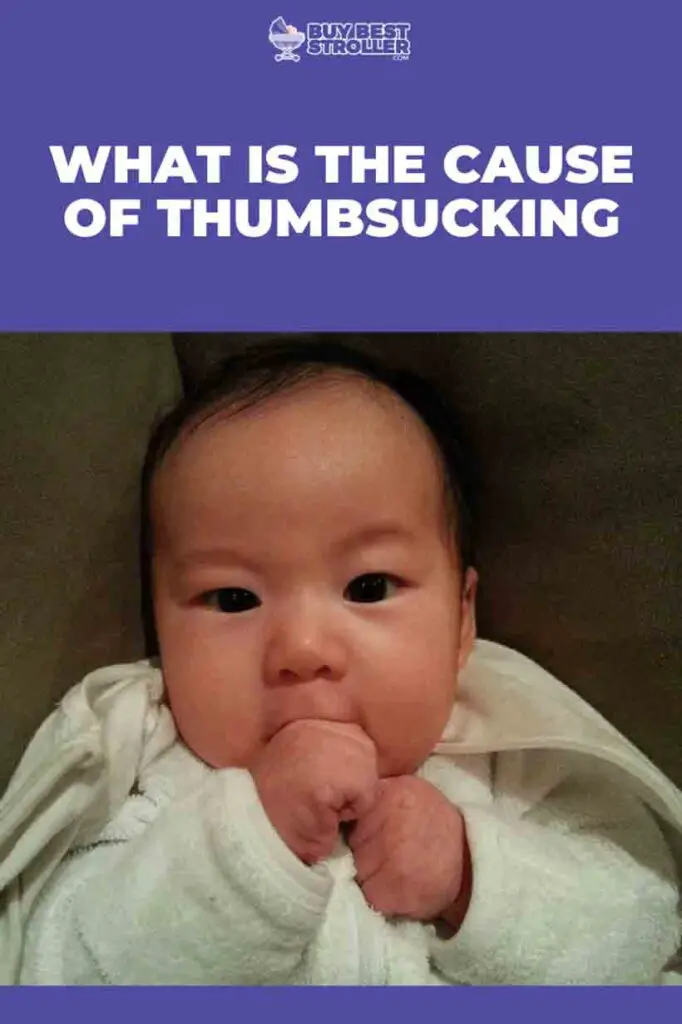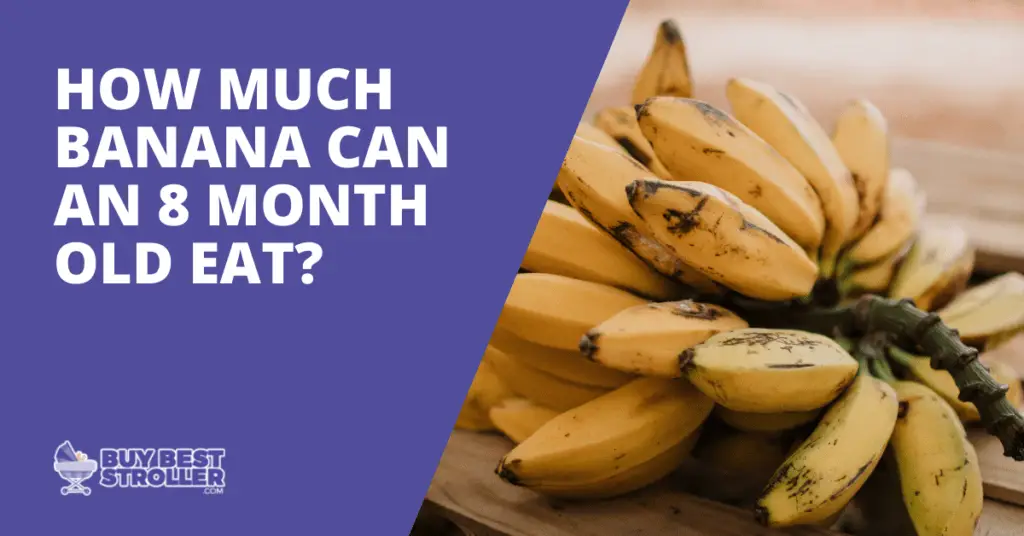What Is The Cause Of Thumbsucking?
Thumbsucking is a natural reflex for babies that develops while in the womb, according to the American Dental Association (ADA). There are many ultrasound images that show babies thumbsucking while in the womb. As they grow in the womb, they use this technique to feel more relaxed. When they’re born, it’s just a force of habit.
Thumb sucking is a soothing and natural habit for babies and toddlers. When babies are tired, hungry, bored, sick, or upset, they suck their thumbs. It makes them feel happy and secure and is also a coping technique for when they feel anxious. Additionally, it is a habit that can help your baby sleep.
During stressful situations, a baby may self-soothe by sucking his or her thumb. Thumb sucking is a stress buster for babies.
It’s perfectly normal for babies to use thumb-sucking or pacifiers during their infancy and toddlerhood. However, if your baby doesn’t stop thumb sucking by the age of 4, you might need to encourage him to break this habit.
Should I Stop Thumbsucking Baby?
Thumbsucking is considered normal in babies until they turn five. Most babies stop thumbsucking by the age of 4, according to the ADA. But if your baby doesn’t stop thumbsucking at this age, you should stop them. Because it can cause dental health concerns such as a misaligned bite, Overbite.
What Causes Long-Term Thumb Sucking?
Or What Are The Side Effects Of Thumbsucking? When thumb sucking is a long-term habit, it can cause permanent damage to your child’s incoming permanent teeth. The following effects are observed in infants who continue sucking their thumbs after the age of five, and all of them are related to dental health:
- Dental Misalignment: According to the American Dental Association (ADA), thumb sucking can cause teeth to move out of alignment over time, which can cause an overbite or underbite. Those who suck their thumb more intensively are more likely to suffer dental problems. Having misaligned teeth on both jaws can cause difficulty in closing the mouth.
- Changes To Palate (The Roof Of The Mouth): Thumb sucking can cause the roof of the mouth to become indented and concave. Because the palate ( the roof of the mouth) routinely touches the tongue when thumb sucking, it can become more sensitive.
- Crossbite: Excessive overbite and overjet lead to misplaced teeth, which in turn cause crossbite, the inability to bite properly.
- Oral infection: A child who sucks his or her thumb may introduce dirt and bacteria into the mouth if his or her thumb is dirty, possibly causing a tooth infection or gum infection.
- Problems with the thumb: If your baby sucking his or her thumb for a long time, the shape of his or her thumb will change, making it thinner or elongated. Additionally, it can cause cracks, bleeding, and infection on the thumb’s skin. Callouses can also be formed on the thumb after long-term thumb sucking.
- Speech Disorder: When a child sucks his or her thumb, the tongue moves forward and backward. Sucking the thumb repeatedly may cause your child to develop lisps, which can affect their speech and their swallowing.
After understanding the main question What Is The Cause Of Thumbsucking, let’s understand the problem it may create.
At What Age Does Thumb Sucking Become A Problem?
Thumb sucking usually becomes a problem after the age of 5. Until your child is about five years old, thumb sucking isn’t considered problematic. As babies reach this age, thumb sucking contributes to dental health concerns such as a misaligned bite.
Between the ages of three and five, babies usually stop sucking their thumbs on their own, as they learn other ways to soothe themselves. But if they continue after their permanent teeth come in, they have a greater chance of developing dental problems such as buckteeth. Sucking can change the shape of the roof of the mouth and also cause teeth to grow forward.
Overbite, misaligned teeth, and changes in the shape of the jaw can result from these changes. Fortunately, some of these issues can be resolved with braces later in life. However, other issues such as jaw-related problems can cause more serious problems. Thumb sucking late in childhood can affect speech development such as lisps.
How Can I Help My Baby Stop Sucking Their Thumb?
As improper teeth alignment is the main danger of thumb-sucking, parents should intervene as soon as their kids start getting their permanent teeth. Taking a wait and watch approach may be the best strategy.
Although most babies eventually stop sucking their thumb, if Your baby continues to do so, follow these tips to stop them:
Use Positive Reinforcement: If your child goes a day without thumb sucking or when they are in a situation where they would normally indulge in the habit, praise them. Provide them with small goals, and reward them when they succeed. For example, you can give them a trip to the park, a meal, a small toy, stickers, or a book.
Comfort Them With Another Item: Make them feel comfortable with another item like a soft toy or a comforter. babies often suck their thumbs prior to falling asleep, so this may be especially helpful when they are going to bed.
Avoid Triggers: Because babies may suck their thumb due to lack of sleep, hunger, or stress, avoid putting them in such a situation. You should keep an eye on them to ensure they are eating well and getting enough sleep.
Bad Tasting Nail Polish: In general, these do not work very well, since babies usually want their finger in their mouth so much that they can tolerate the taste, but they may be worth a try. You can try another brand with a different taste if one brand doesn’t work.
Socks On The Hands: When your baby is sleeping, cover his or her hands with socks or clothes. Your child will probably outwit the socks if they are removable, so the socks may be a temporary solution.
Offer Reminders: Gloves can remind and dissuade nighttime thumb suckers. If your baby is older, try using a product that creates a stinging sensation when the thumb meets the lips. You should encourage your baby to paint it on himself.
When Do Babies Start Sucking Their Thumbs?
As we now have a better understanding about: What Is The Cause Of Thumbsucking? and what are the consequences of it, Now let’s understand when do babies start sucking their thumb? So, Babies start sucking their thumb in the womb right around the 29th week of pregnancy. Generally, babies begin sucking their thumbs within the first three months after they are born.
When Does A Baby Stop Sucking His/Her Thumbs?
Between the ages of 2 and 4, babies stop sucking their thumbs. Only 30% of babies continue sucking their thumbs after the age of one, according to a study by the University of Chicago. That means the majority of babies give up the habit before they turn one. Only 12 percent of infants still suck their thumbs after age four.
After the age of 4 old years, if the child continues to suck the thumb, consult a pediatrician. As the toddler is old enough to understand Instructions, counseling and corrective practices may help him or her break the habit.
Is Thumb Sucking Hereditary?
No, Thumbsucking is not Hereditary. It is a “childhood body-focused behavior”. Though there are some people who believe thumb sucking is hereditary.
Yet, no “thumb-sucking gene” has been found. However, a Japanese study involving 1,131 pairs of twins found that finger-sucking behavior was strongly influenced by genetics in 66% of male twins and 50% of female twins, as well as nail-biting behavior, in 50% of both males and females.
People have long believed thumb-sucking behavior runs in families. Recently, some studies have supported this belief. According to an Austrian study that examined the families of children with eating disorders, thumb sucking was more common in children from certain types of families than those from other types of families.
Related Topics:
- How To Get Baby To Sleep In Bassinet? ( 4 Best Practices )
- Should I Stop Solids If Baby Is Constipated?
- How Long Should a Newborn Sleep Without Feeding?




